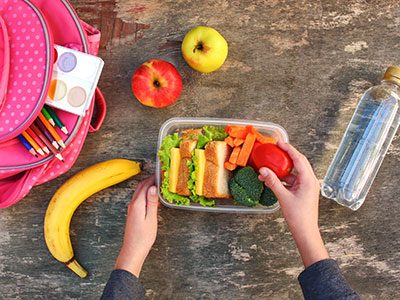While it is true that milk can be a great part of a healthy diet for children, too much milk can lead to health problems such as iron deficiency anemia and protein loss from the gut.
What is iron deficiency anemia?
Iron is an important mineral we get from our diet that our bodies use to make hemoglobin, a protein in red blood cells that helps deliver oxygen to different tissues in our bodies. Iron deficiency anemia occurs when you have low levels of hemoglobin in your body due to not enough iron.
While breast milk or formula is a good source of iron for babies up until six months of age, after six months, milk alone does not provide enough iron, which is why solid foods should be introduced to children.
Common symptoms of iron deficiency anemia include pale skin, lack of energy and shortness of breath after activity.
What is protein loss from the gut?
Protein loss from the gut, or protein losing enteropathy, occurs when a child drinks too much milk, causing low levels of protein in the blood. This can cause blood vessels to leak fluid into the tissue which leads to swelling of the legs, back and face. It can also put you at risk for infections.
Protein loss and swelling can be caused by other disorders so your pediatrician will ask questions about your child’s overall health and symptoms to determine the cause.
Symptoms of protein losing enteropathy include:
- swelling of the feet, legs and face
- muscle cramps or weakness
- extra fluid around the lungs
- swelling of the abdomen
How can I prevent my child from getting iron deficiency anemia or protein losing enteropathy?
To prevent your child from getting iron deficiency anemia or protein losing enteropathy, make sure they are drinking no more than the recommended daily amount of cow’s milk. For toddlers, the recommended amount is about 250-500 mL, or 1-2 cups per day. Exceeding this amount can lead to problems.
How are iron deficiency anemia and protein losing enteropathy treated?
Iron deficiency and protein loss from the gut due to excess milk intake are treated by reducing the amount of milk a child drinks and increasing the amount iron rich foods in their diet. Often, iron supplements are also recommended.
 https://riseandshine.childrensnational.org/wp-content/uploads/2026/02/olympics-feature.png
300
400
webteam
https://riseandshine.childrensnational.org/wp-content/uploads/2017/11/childrens_riseandshine_logo.jpg
webteam2026-02-05 16:41:512026-02-06 08:51:52What the Winter Olympics can teach our children
https://riseandshine.childrensnational.org/wp-content/uploads/2026/02/olympics-feature.png
300
400
webteam
https://riseandshine.childrensnational.org/wp-content/uploads/2017/11/childrens_riseandshine_logo.jpg
webteam2026-02-05 16:41:512026-02-06 08:51:52What the Winter Olympics can teach our children




















Leave a Comment
Want to join the discussion?Feel free to contribute!